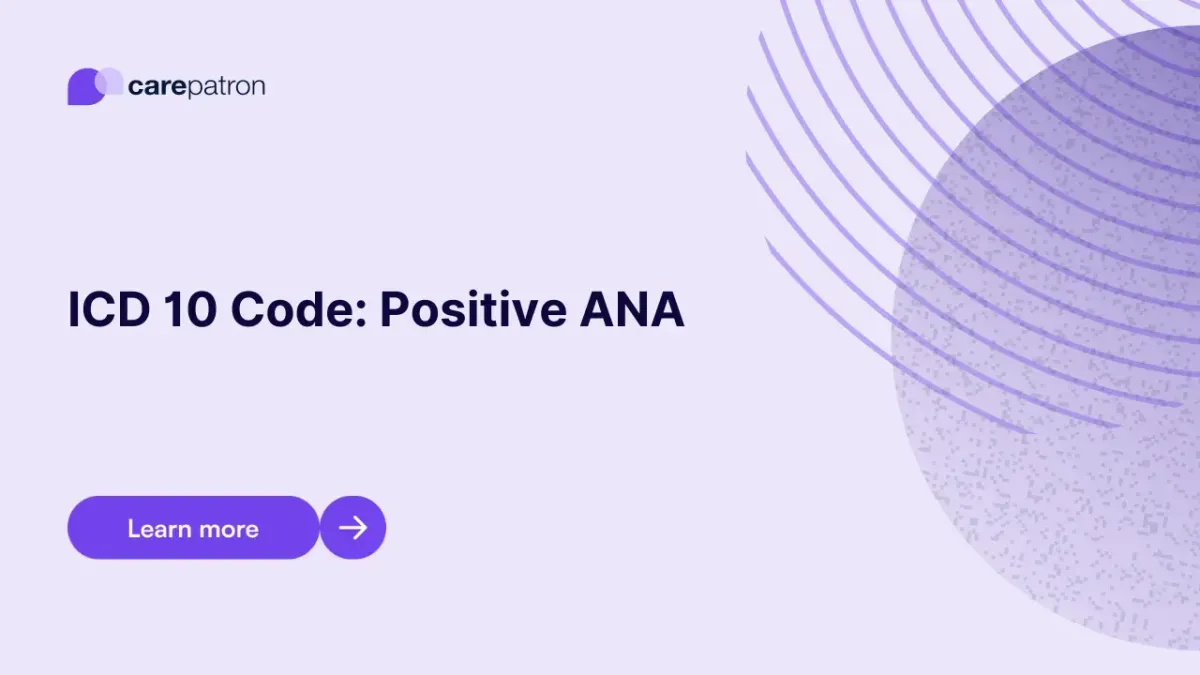
Positive ANA ICD-10-CM Codes
Read this short guide and learn about Positive ANA ICD codes you can use.
Use Code
Commonly asked questions
For similar ones to the two listed above, no. The closest to these would be ICD-10 codes specific to autoimmune diseases/disorders related to the presence of ANA.
They conduct an ANA Test where they draw blood from the patient to test in a laboratory setting. This blood test may cause dizziness, bruising, soreness, and the feeling of fainting. Patients undergoing this test must inform the professional if they took any medicine, which may affect the results.
That depends. Just because a person is positive for ANA doesn’t mean they have an autoimmune disease or some other problem causing it. It might be just a result of medicine use. If the presence of ANA points to specific problems, then those problems must be addressed. Treatment will depend on the problem, especially if they are autoimmune diseases.
EHR and practice management software
Get started for free
*No credit card required
Free
$0/usd
Unlimited clients
Telehealth
1GB of storage
Client portal text
Automated billing and online payments
